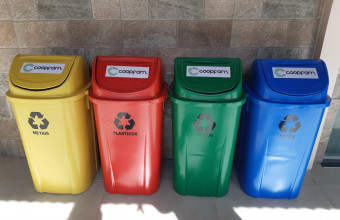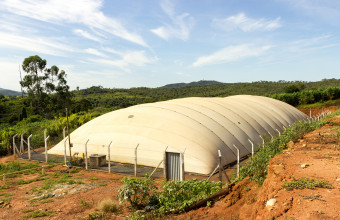A partnership between institutions representing cooperatives in Brazil and Germany has shown a new and little explored path for the generation of clean and sustainable energy: the protagonism of people and cooperatives.
Since 2012, with the revision of the Brazilian regulation on Distributed Energy Generation (REN 482/2012), individuals and/or legal entities are allowed to produce their own energy on an individual basis. In doing so, they can significantly reduce their electricity bill and – in case of surplus production – pass on the remaining kilowatts to the energy distributor in exchange for credits in the members’ bills.
Aware of the opportunity of this new model of energy generation, the Organization of Brazilian Cooperatives (OCB) contributed, in 2015, to the public consultation for the revision of the regulation that allows energy consumers to join together in cooperatives to generate their own energy.The request was inspired by the German renewable energy cooperatives – an international reference in the subject. There, approximately 50% of renewable energy generation is owned by people, resulting in independence, participation, development, and energy democratization.
The National Agency of Electric Energy (ANEEL) attended the plea of our representation entity and included the cooperatives in the new regulation. By the way, it is worth pointing out: the cooperative was the only model accepted by the agency to perform the activity with individuals. recognition of the seriousness and qualities of the cooperative model.
INVESTMENT WITH RETURN
The project to encourage distributed energy generation headed by OCB and the German Confederation of Cooperatives (DGRV) began in 2016 and focused on dissemination, training and clarification about the opportunity for cooperatives to generate renewable energy. A total of R$ 350 thousand was invested (R$ 100 thousand from OCB and R$ 250 thousand from DGRV).
The joint work between the two entities allowed the development of informative materials such as booklets, publications, videos and studies, as well as the participation and organization of several events to raise awareness among cooperatives and the population in general about the benefits of the possibility of generating their own energy in a collaborative way. Finally, we also focused on collaboration for the international expansion of the project, with initiatives developed in countries such as Chile, Colombia, Mexico, and Costa Rica.
The results came fast: the installed capacity of renewable energy produced by cooperatives increased from 0.075 MW in 2016 to 8.1 MW in 2019. By the end of 2020, there were 11.4 MW in shared generation.
Growth was also recorded in the number of people involved in this model of energy generation. We ended 2020 counting a total of 24 shared energy cooperatives. Consumer units increased from 149 in 2019 to 238 in 2020.
Still in progress, the project wants to expand the aspect of sustainability in energy generation, focusing on technologies (such as biogas), which transform environmental liabilities into assets, through the protagonism of people.
SERVICE
To learn more about the distributed energy generation market in Brazil, access the site www.energia.coop.





